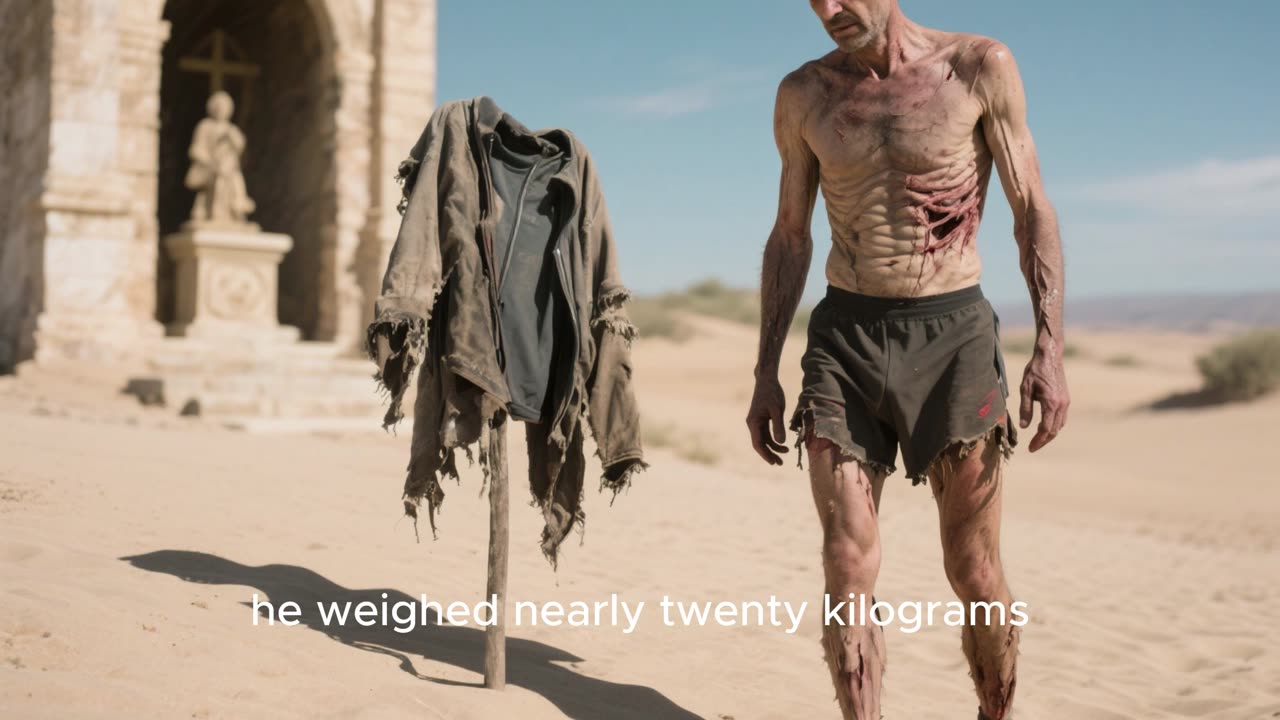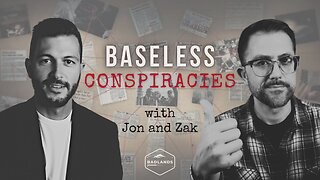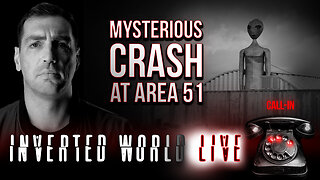Premium Only Content

Nine Days in Hell
The Man Who Survived the Sahara Desert
The Sahara is not a place made for life. It stretches endlessly across North Africa like an ocean of burning sand, a land where the sun rules without mercy and the horizon never seems to move closer. To stand there is to feel small, forgotten, swallowed by heat and silence. For most people, the desert is a place to fear, to avoid—but for one man, it became his prison, his test, and ultimately, his story of survival against the impossible. His name was Mauro Prosperi, an Italian police officer and athlete who in 1994 entered a race that would nearly cost him everything.
The event was called the Marathon des Sables, a six-day, 250-kilometer ultramarathon across the Moroccan Sahara, known as the toughest footrace on Earth. Runners carried their own food, sleeping gear, and supplies, battling dehydration, exhaustion, and temperatures that soared past fifty degrees Celsius. Mauro was strong, disciplined, and determined. He had trained for months, dreaming of glory, of pushing his body to its absolute limit. On the morning the race began, the desert seemed calm, the sky a flawless blue. None of the runners could have imagined the chaos waiting beyond the dunes.
By the fourth day, the sun burned white in the sky and the wind began to rise. Within minutes, the horizon disappeared as a wall of sand swept across the desert—a full-blown sandstorm, violent and unrelenting. Visibility dropped to zero. The runners scattered, covering their faces as the storm howled like a living thing. Mauro ran blindly, trying to stay on course, but when the wind finally stopped, the world around him was unfamiliar. The tracks were gone. The direction markers had vanished. He was completely alone.
He checked his compass, then his map, and realized with horror that he had veered miles off course. His water supply was dwindling, his lips cracked, his eyes burning from the sand. But Mauro refused to panic. He kept moving, hoping to rejoin the race or find a checkpoint. For hours he marched through the heat until the sun began to sink, and with it came the cold—bone-deep and merciless. The desert, hot by day, turned deadly by night.
The next morning, his water was almost gone. He tore a corner from his survival manual and scrawled a note to his wife: “I love you. I’m sorry.” Then he pushed onward. He stumbled upon an abandoned Muslim shrine, a stone shelter half-buried in sand, and crawled inside. There he decided to stay, rationing his last sips of water, eating what little food he had left. When his supplies ran out, he drank his own urine, trying to trick his body into believing it was enough. He caught bats that roosted in the shrine and sucked their blood for moisture. Days passed. The sun rose and fell, and Mauro began to drift between reality and delirium. He dreamed of rain, of home, of the sea.
By the eighth day, he weighed nearly twenty kilograms less than when he started. His skin was cracked and bleeding, his tongue swollen, his voice gone. Convinced he would die, he wrote another note to his wife and children, then lay down on the sand, ready for the end. But fate wasn’t finished with him yet. In the distance, he saw a faint shimmer of movement—something human. Summoning his last strength, he stood and began to walk. The figure grew clearer—a young girl herding goats. She screamed and ran, returning moments later with her family. They were nomads, living far from civilization, and when they saw the broken man collapsing in the sand, they carried him to their camp.
The nomads gave him goat’s milk and tea, forcing him to drink slowly so he wouldn’t die from shock. After a day of care, they placed him on a camel and led him toward help. When Mauro was finally handed over to Moroccan soldiers, he had been missing for nine days and had wandered more than 290 kilometers off course—crossing into neighboring Algeria. Doctors later said his body was so dehydrated that his blood had become thick like syrup, his organs on the verge of failure. And yet, against all odds, he lived.
When he finally returned home to Italy, the story made headlines around the world. Many called him reckless; others called him a hero. Mauro simply said he had discovered what life was worth when stripped of everything else. He went back to the Sahara years later to thank the nomads who saved him, bringing gifts and water filters for their village. When reporters asked him if he feared the desert after what he had endured, he smiled and said no—the desert had given him something no race could ever offer: respect for life and the knowledge that strength is not about running fast, but about never stopping when the world tells you to fall.
Even now, when the sun rises over the dunes of Morocco, there is a small shrine where runners pause before they begin their journey. It stands not far from where Mauro Prosperi almost died, a quiet reminder of one man’s will to survive when the desert itself tried to erase him.
-
 2:02:36
2:02:36
Badlands Media
12 hours agoBaseless Conspiracies Ep. 157: Jack the Ripper, the Crash & the Great Disclosure Countdown
22.2K17 -
 2:06:09
2:06:09
Inverted World Live
8 hours agoMysterious Crash at Area 51 | Ep. 134
15.6K10 -
 2:48:59
2:48:59
TimcastIRL
6 hours agoTrump Endorses Cuomo, Says NO COMMIE MAMDANI, Obama REFUSES To Endorse Mamdani | Timcast IRL
253K149 -
 LIVE
LIVE
Drew Hernandez
1 day agoGOP CIVIL WAR: TUCKER CARLSON DERANGEMENT SYNDROME AT ALL TIME HIGH
1,019 watching -
 14:44
14:44
Sponsored By Jesus Podcast
1 day agoYou Can't Serve God & MONEY | Is Money the Root of All Evil?
15.9K15 -
 2:47:28
2:47:28
Barry Cunningham
10 hours agoYOU'VE BEEN MISINFORMED! GREED IS ACTUALLY GOOD! ESPECIALLY NOW! (AND MORE NEWS)
89.3K38 -
 7:18:24
7:18:24
SpartakusLIVE
9 hours agoSNIPING in Battlefield 6 - REDSEC || Monday MOTIVATION to CONQUER the Week
49.8K5 -
 49:25
49:25
ThisIsDeLaCruz
5 hours ago $15.14 earnedBack Stage Pass with Avenged Sevenfold
49.2K8 -
 6:43:40
6:43:40
GritsGG
11 hours agoWorld Record Win Streak Attempt! #1 Most Wins 3880+!
26K2 -
 3:12:05
3:12:05
Tundra Tactical
8 hours ago $22.59 earnedProfessional Gun Nerd Plays Battlefield 6
56.1K6